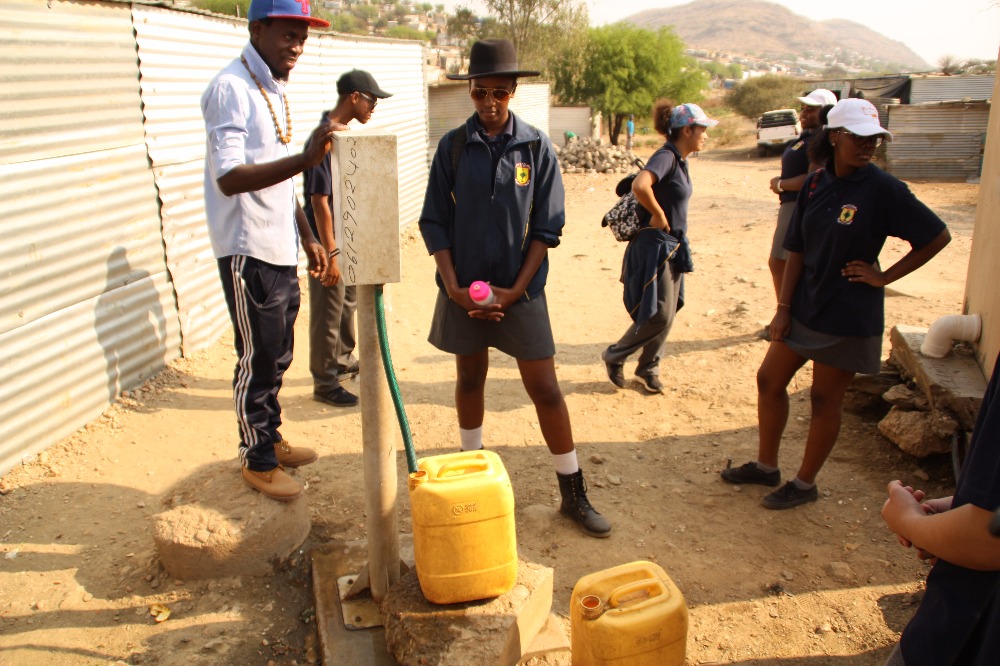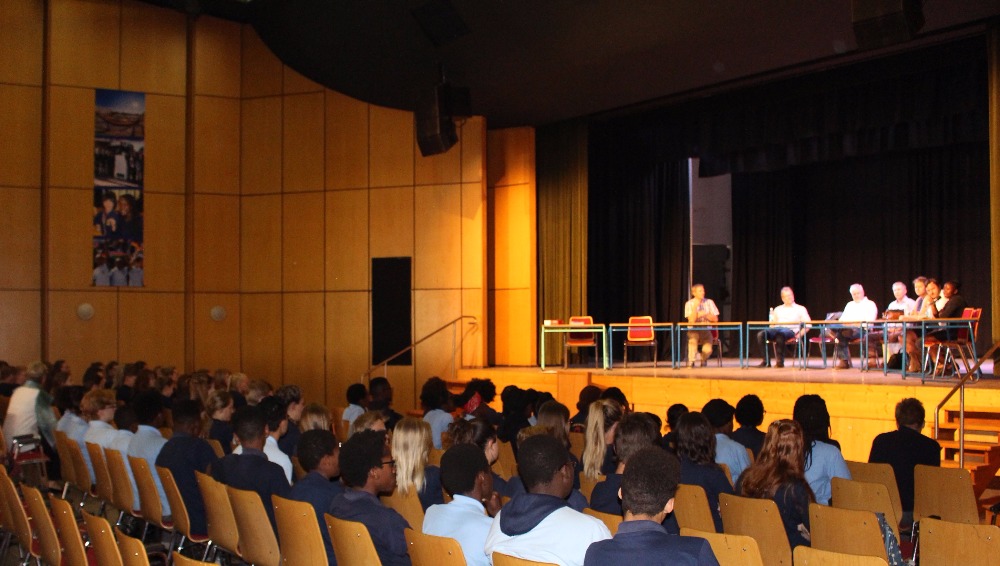Searchlight on poverty
“Poverty and urban planning" is an ongoing project at the DHPS that focuses on bringing impoverishment in our country out of the shadows and into the limelight. The grade 10s spent two days (21-22 September 2017) investigating and observing the underlying causes and the lasting effects of poverty in Namibia. The two days covered a wide range of topics ranging from rural electrification to urban planning, all revolving around the central theme of poverty in Namibia. The two day course kicked off with a day in Katutura’s formal and informal settlements, and was followed by an “expert day” at school, where several experts on various topics involving poverty in Namibia, where invited to share their knowledge with the students.Day 1; Katutura Excursion
On Thursday 21st September, the grade 10 learners of DHPS went on an excursion to the informal settlements of Windhoek to experience how the less fortunate live on a day to day bases. The program started off with a welcoming and introduction from a humanitarian at the Ombilli Community Center, Mr Samuel Kapepo. The learners were divided into groups of 5 and each group had a leader or guide to take them through the informal settlements. They got to see devastating conditions fellow Namibians were eating, living and some working in. “Most of the people living here are smart and all they need is an opportunity” says accompanying DHPS teacher Mr.Pompé. The deeper the students went the more emotional it got to see the suffering of others. Walking through these parts you get to see the worst living conditions in Windhoek. In addition they walked along the notorious Eveline street of Windhoek. “I learned to appreciate the hard work of my parents and realized that I have nothing to complain about,” says DHPS learner and DHPresS journalist Danté Ilovu.
.
Day 2; Expert day
On Friday 22nd September, DHPS warmly welcomed 11 NGO-representatives and industry experts. Each shared their knowledge and spread the word on their respective organisations. The panel of experts ranged from senior university students to seniors in the field of urban and rural planning as well as development cooperation. Each presentation was followed by a Q&A session, where students were allowed to ask pressing questions and have them answered by those in front lines of battle against poverty. At the end of the day, students left more informed than they came, on the biggest problem facing the country they live in.





Comments
My Zone
No comments have been left on this article